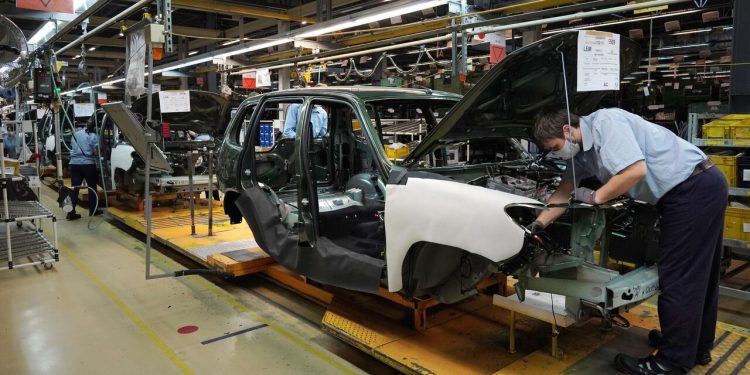Russian Automakers Move to Challenge Asian Rivals in Africa With Local Assembly Rollout
Russia’s automakers UAZ and AvtoVAZ are stepping up plans to enter Africa’s fast-growing car market, pursuing local assembly initiatives aimed at competing with dominant Asian manufacturers and tapping into the continent’s push to build domestic vehicle production capacity.
Following the successful shipment of tractors to Ethiopia, Russian automakers UAZ and AvtoVAZ are now exploring local assembly opportunities as part of a broader effort to deepen Russia-Ethiopia economic ties and tap into Africa’s emerging shift toward homegrown vehicle production.
According to a report by The Reporter Ethiopia, Russia’s embassy in Ethiopia confirmed that UAZ and AvtoVAZ are conducting market-entry studies and negotiating a possible presence in Addis Ababa, signalling a significant move into African vehicle manufacturing.
Russian Foreign Minister Sergey Lavrov said relations between Russia and Ethiopia are undergoing “successful and steady development” after talks with Ethiopian Foreign Minister Gedion Timotheos.
He noted that both sides aim to deepen cooperation across multiple sectors through a more active Intergovernmental Commission.
Meanwhile, Ambassador Evgeny Terekhin told TASS that Russian automakers UAZ and AvtoVAZ are advancing discussions to enter Ethiopia’s automotive market. He described the sector as a key area for future bilateral economic collaboration.
In a statement posted on social media, Ambassador Evgeny Terekhin said:
“The process involves conducting in-depth marketing and technical research to ensure the economic feasibility of the projects.”
He added that official negotiations are underway and stressed:
“We expect the results of the decisions to allow Russian cars to take a worthy place on the roads of Ethiopia,” Terekhin said.
The move by Russian automakers comes as multiple African countries push to expand domestic vehicle manufacturing instead of depending heavily on imported cars, particularly used vehicles, which still dominate the market due to affordability challenges.
Governments in South Africa, Morocco, Kenya and Nigeria are increasingly offering tax breaks, special economic zones and investment incentives to global automakers in hopes of building industrial capacity and creating jobs.
So far, Asian manufacturers have taken the early lead. Chinese brands such as BYD, Chery and Great Wall Motor are growing aggressively across the continent with affordable models and expanding assembly partnerships.
Indian giants like Tata Motors and Mahindra have also strengthened operations, moving toward more advanced local production.
This shift aligns with Africa’s broader ambition to retain more value in supply chains while preparing for the future of mobility.
Russia’s interest through UAZ and AvtoVAZ adds a new competitive layer. Their potential entry into local assembly could diversify the market further and pressure policymakers to sustain reforms that favor new-vehicle production over continued reliance on used-car imports.








